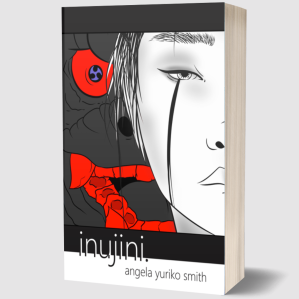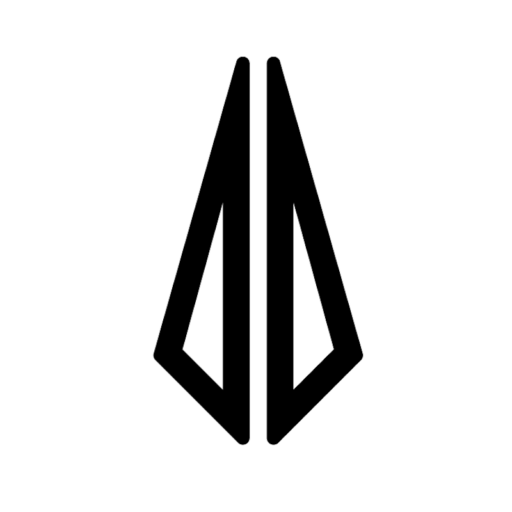This month, Sahtu Press continues our new interview series with writers across the globe to assist intercultural conversations on what it means to be creating in our modern times, finding our own voices, and reaching towards the outermost limits of our imagination. This month we interview speculative poet and creator Angela Yuriko Smith!
Angela Yuriko Smith is a third-generation Shimanchu-American, award-winning poet, author, and publisher with 20+ years of newspaper experience. Publisher of Space & Time magazine (est. 1966), two-time Bram Stoker Awards® Winner, and an HWA Mentor of the Year, she is currently serving her second term as a Trustee for the Horror Writer Association. She is the founder of Yuriko Publishing, a small but innovative press designed to create a new publishing paradigm. Agile and efficient, they benefit from a lean and focused staff. What they lack in size they make up for in talent. Populated by an award-winning and diverse staff, Yuriko Publishing seeks to be an example of equitable and sustainable publishing.

Can you tell us a little about yourself, and how did you develop an interest in writing?
A lot of people don’t know this about me, but I was born in Kentucky and I grew up on the prairie in Cheyenne, Wyoming. My mom taught me to read a year or two before Kindergarten and the earliest thing I can remember being completely lost in was a Ranger Rick magazine. I stumbled onto fiction when I found a copy of Alfred Hitchcock’s Monster Museum in the school library sometime around first or second grade, but it was a comic book that inspired me to be a writer. I can’t remember the title, but there was a supervillain that could control language. This one panel was full of a dramatic monologue about how if one could control words, one could control the world-future-everything. One could write their own future. The weight and truth of these words left me breathless. I decided to master words myself and I’ve been obsessed since. Don’t worry, I’ve given up on my plans to rule the world (is what an aspiring, future super villain might say).
Where are you hanging your hat these days?
My hat currently hangs on a defunct landline telephone in the kitchen in Santa Catarina, Brazil. My husband, two dogs, two of my adult kids and a grandchild are here too. My youngest daughter came to visit a friend she met online right before COVID hit. Not realizing the pandemic was going to last so long, we urged her to shelter in place. She wound up falling in love, having a baby and is now married to a Brazilian. My husband and I visited late last year and fell in love. We gave away and sold everything we owned, including our house in Kansas City, and moved to Brazil within a few months.
What are some of your favorite things to study, and how has this influenced your approach to writing?
This is a great follow-up question, because it’s a big reason I wanted to move to Brazil. For the last decade I’ve been studying mediumship as it applies to my family. In Shimanchu-Okinawan culture, women hold the spiritual connection. A woman with a strong connection, a kaminchu, often becomes a yuta. They are a type of medium or shaman, and that’s what some of my family did before they immigrated to Hawaii. It was when my great-uncle Shigaru passed away in 2015 that inspired me to take a closer look at yuta. His spirit stayed in our house for a week and caused quite a lot of mayhem with plenty of witnesses. Finally, I connected and appeased him. Peace returned to our house. I’ve been trying to find out more information since, but it hasn’t been an easy topic to research. In January I have a trip planned to visit Sao Paulo and meet some practicing yuta as well as receive traditional haijichi tattoos on the back of my hands. I wrote about some of this in Tortured Willows, which surprised us all by winning a Bram Stoker Award. I wrote about more as an essay in Unquiet Spirits which was released in early 2023. Now I am working on a nonfiction book about yuta shamanism and how it has evolved here in Brazil.
Who do you turn to for your literary inspirations?
That list is so long…! Definitely contemporary poets, many of which are Asian BIPOC (including yourself!). Since Black Cranes was published I’ve been reading a lot of work by Asian authors in all genres including nonfiction and poetry. I just started Ezra’s Ghosts by Darcy Tamayose and have Yellowface by R.F. Kuang and Lee Murray’s Despatches lined up to read next. Recently I’ve loved Seek Ye Whore by Yvette Tan, and House of Pungsu by K.P. Kulski. I owe a debt of gratitude for The Fervor by Alma Katsu. That book inspired me to write my first novel length work, Inujini, which will be released June 23, 2024.

What do you aim to achieve with your writing?
This answer has certainly evolved for me with time. Years ago I would have given some vague answer about being my best self on paper, but my writing goals have narrowed in the last few years. During my research into yuta I uncovered suppressed histories and found my mission:
“Japan first colonized the Ryukyu Kingdom and renamed it Okinawa Prefecture in 1879 through military force in violation of international law including the UN Declaration on the Rights of Indigenous Peoples. Following the annexation, the government of Japan banned the Indigenous language and culture and imposed colonial rule and imperialization policies upon Okinawa, profoundly damaging the unique culture and language of Indigenous Ryukyuans.” From the Observations on the State of Indigenous Rights in Japan Prepared for United Nations Human Rights Council: 4th Cycle of Universal Periodic Review of Japan 42nd Session of the Human Rights Council.
Growing up I was told that my family was Japanese. It was common for Shimanchu to pass as Japanese to avoid discrimination. I was 35 when I found out there was a genetic and cultural difference. As I learned more I went through stages of anger, outrage and mourning. That’s why I wrote Inujini. It’s my attempt to bring emotional awareness to the situation in Okinawa that continues to this day.
What are some of the exciting things you’ve learned over the last year as a writer?
I learned that haiku has origins in incantations, divine prophecy and magic. In The Catalpa Bow: A Study of Shamanistic Practices in Japan, the author Carmen Blacker reports “… we can detect in the god’s speech the metre which from the earliest times has been fundamental to Japanese poetry, a metre of alternating seven and five syllables… Japanese poetry began as the utterances of a shaman in a trance. Its metre and poetic devices are not the work of man, but revealed from a divine source.” during an interview with Nakayama Tarō. (Emphasis my own)
As a poet drawn to haiku, a practitioner and an author, that certainly felt divine to me.
What would international readers find interesting about the state of speculative literature these days?
I hope international readers find the current trend of publishing diverse voices interesting. For a long time the publishing world at large has lacked stories that included culture outside of the mainstream. Thanks to technological advances, we are so globally connected now that the playing field has opened up not only to BIPOC voices but a wide variety of perspectives and experiences.
What’s the best compliment you’ve received for your writing so far?
I would have to say getting asked to do interviews like this one. Writing is a solitary business full of doubt. When someone shows genuine interest it’s the greatest compliment I can receive. Aside from that, a shining moment for me remains when Anton Cancre approached me after a reading and thanked me for “post-consumer bones,” a line from my poem. That was a few years ago and it still makes me feel warm and fuzzy whenever I remember it.
What’s one of the most unusual subjects you’ve taken on with your writing?
For a long time I would boast that I would write anything for anything. That has taken me on some strange assignments from writing about food, feuds, houses, house fires and everything in between, but possibly the strangest interview I ever conducted was with a man who considered himself a vampire as a result of being infected by what he called the v5 virus. This led me down a path to discover quite a few people consider themselves vampires, and there are whole communities of people who live as vampires around the world. One day I’d like to visit one of these communities and interview more vampires.

What’s next for you?
This next year is going to be a busy one for me. I will be really pushing Inujini to as many readers as I can. I read that David Bowie is credited with bringing down the Berlin Wall due to the awareness his song Heroes brought to it. I hope Inujini can do that for Okinawa. In that spirit, I invite anyone to sign up for an ARC on my website: angelaysmith.com. I’ll also be arranging for the first awards from Space and Time magazine to be presented in November at LaikaCon, a virtual convention we will be hosting. By the end of the year I hope to be ready to send my current WIP on yuta and shamanism into the world. Other than that, I plan to be traveling back through the U.S. next June. Come and say hi if you see me!
And thank you Bryan!
